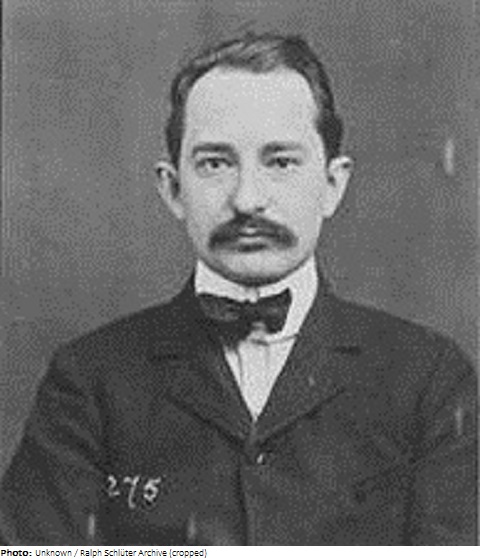
| Roles | Competed in Olympic Games |
|---|---|
| Sex | Male |
| Full name | Sergey Aleksandrovich•Yuryevich |
| Used name | Sergey•Yuryevich |
| Original name | Сергей Александрович•Юрьевич |
| Other names | Serge Youriévitch |
| Born | 31 March 1876 in Paris VIIIe, Paris (FRA) |
| Died | 18 December 1969 (aged 93 years 8 months 18 days) in Boulogne-Billancourt, Hauts-de-Seine (FRA) |
| Title(s) | Prince |
| NOC |  Russian Federation Russian Federation |
Sergey Yuryevich was from a noble Russian family from Belarus and held the title of Prince, maybe not such a good thing after the Bolshevik Revolution. In Russia, he first studied politics in St. Petersburg. In 1903, he began studying painting and sculpture in Paris with Auguste Rodin. There, Yuryevich was a secretary at the Russian Embassy and later became cultural attaché. In French, his name was spelled Serge Youriévitch, which he used. At that time, he also headed an institute for psychology. Subsequently, Yuryevich lived temporarily in Switzerland and Italy before devoting himself entirely to sculpture and opening a studio in Paris above that of Rodin. When World War I broke out, he returned to Russia. After the October Revolution, he emigrated to France, and received French citizenship in 1933.
Youriévitch became an accomplished sculptor and in 1930 made a bust of Franklin D. Roosevelt, then Governor of New York. Another bust he created was of Thomas Hardy, the English novelist and poet. Youriévitch also contributed to British art, including sporting art and modern sculpture. He also focused on garden and fountain pieces. In 1957 he obtained American citizenship. Youriévitch taught sculpture at the Guildford School of Art in the 1950s.
Strangely enough, Youriévitch is not listed as a competitor in the Official Report. He is mentioned, though, in the exhibition guide with two of his works. His Wrestler (Le Lutteur) is a 1 m tall plaster sculpture that was acquired by Luxembourg. His best-known figure, widespread in different versions, is that of The Dancer Nattova (La Danseuse Nattova). Natasha Nattova (1905-1988), born as Natalia Schmit, fled to France because of the October Revolution. She later turned to modern dance and became a famous vaudeville dancer in the 1920s. The plaster model was commissioned by the city of Paris and first exhibited in the Salon d’Automne in Paris in 1923. The original bronze from 1924 was about 75 cm high and was melted down during the occupation during World War II.
| Games | Discipline (Sport) / Event | NOC / Team | Pos | Medal | As | |
|---|---|---|---|---|---|---|
| 1924 Summer Olympics | Art Competitions |  RUS RUS |
Sergey Yuryevich | |||
| Sculpturing, Open (Olympic) | ||||||
| Sculpturing, Open (Olympic) |